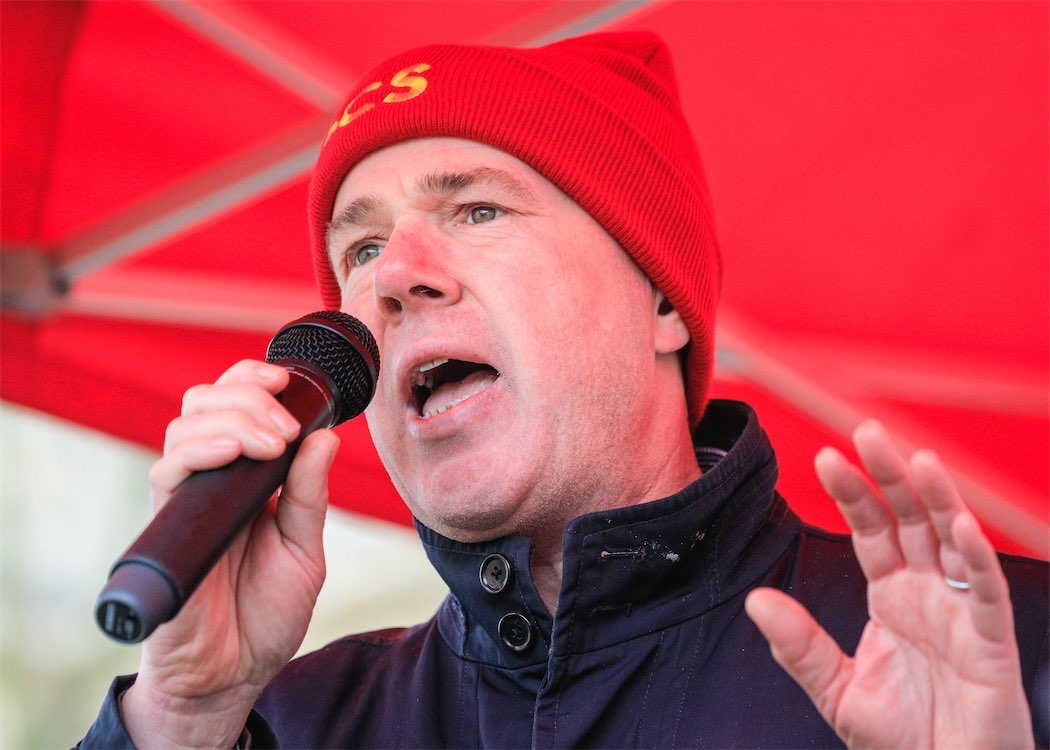Government And Civil Service "Harmony" Unlikely Despite New Pay Offer
The PCS general secretary predicted their dispute with the government is far from over (Alamy)
5 min read
General Secretary of the PCS union Mark Serwotka has said it is unlikely his union will be able to resolve its dispute with the government based on recent pay concessions, warning that industrial action could hit further key sectors in the coming months.
As one of the largest trade unions in the UK, PCS represents around 235,000 members of the civil service across government departments, Non-Departmental Public Bodies, and government contractors. The union is involved in ongoing disputes over pay for its members, having overseen multiple strikes across the civil service already this year.
The PCS national executive is meeting this week on 12 and 13 July to decide their next steps in response to the government’s latest offer, which includes a non-consolidated lump sum of £1,500 to workers to ease cost of living pressures.
The government said the payment will be made by individual employers, but Serwotka said that some employers are refusing to do so, or are offering the payment on a pro-rata basis that would penalise part-time workers who are more likely to be women and among those who receive the lowest pay.
“It is very likely that the feedback we're getting when the executive meets will not be of the view that that’s enough to bring the dispute to an end,” Serwotka told PoliticsHome.
“My feeling is that any idea that the government was going to get goodwill by putting money on the table has been completely undermined by the employers penalising women workers who are part time.
“The way the employers have chosen to penalise part-time workers makes it hard for me to say now that I think next week will bring peace and harmony, which is what the government said they wanted.”
Serwotka previously told PoliticsHome in March that the PCS would continue strike escalation until ministers engaged "enhanced pay offers". While he now recognises some progress has been made, he believes strike action might be far from over.
According to the union leader, depending on what the PCS national executive decides this week, industrial action is most likely to hit the areas where the lump payment is so far not being offered by employers, such as the British Museum, the Metropolitan Police, the National Highways Agency, and prison services.
“Industrially, the one thing we know already, is there's likely to be strikes in any place not paying the £1,500,” he said, but stressed that it is the national executive’s decision as to whether to escalate industrial action.
The PCS general secretary suggested legal action might also be on the cards, to be discussed at the meetings this week.
“Everything has to be an option, but how those options are exercised will depend on the executive’s interpretation of the feedback that we're getting, and where we think the next step lies,” he said.
“So clearly, we may well contemplate legal action, for example, if the actions of the government clearly discriminate indirectly on the grounds of sex against women or against part-time workers. Legally we have to look at all our options.”
 Mark Serwotka joined a PCS march and protest in Westminster alongside other unions in March (Alamy)
Mark Serwotka joined a PCS march and protest in Westminster alongside other unions in March (Alamy)
Serwotka accused the government of “pretending” that it is up to individual employers how to implement the payments, and said he believes it is within the government’s power to enforce their initial intention “to make sure that the lowest paid got the most money”.
“[The government] can certainly tell the civil service departments what they should be doing, and they are pretending that everything is down to individual employers, but the decision to offer extra money was a government decision,” he said.
PCS has faced some internal criticism from radical left-wing groups, such as from the PCS Broad Left Network who have accused the leadership of being “thoroughly out of touch” with members and taking steps to “wind” down the union’s national campaign by suspending strike action in areas such as the Driver and Vehicle Licencing Agency (DVLA).
Admitting there had been some “healthy debate” within his union, Serwotka said the union should not be pursuing strikes as “an end in themselves”.
“[Strikes] are a means to an end,” he said.
“You're trying to get more money and a better offer and therefore if someone has made concessions, it's ludicrous to not take the view that you should consult widely about whether those concessions have affected people's decision about going on strike.”
Serwotka said the union was likely to make a public statement as to the outcome of its internal talks either on the evening of 12 July or the morning of 13 July.
The general secretary, who has led PCS since 2000, is retiring at the end of this year, and told PoliticsHome he hopes a woman will replace him and "continue in the direct of travel" taken under his leadership.
"My hope is that I am replaced with the first woman general secretary of the union," he said.
"It is a majority women workforce, we've got brilliant women at all levels in our union and I think it is time."
A Cabinet Office spokesperson said: "Our pay remit guidance, which offers the highest pay increase in 20 years, and the one-off payment recognises the hard work and vital importance of civil servants.
"This is also fair to the taxpayer and supports the government’s promise to halve inflation this year, which will help everyone’s incomes go further."
